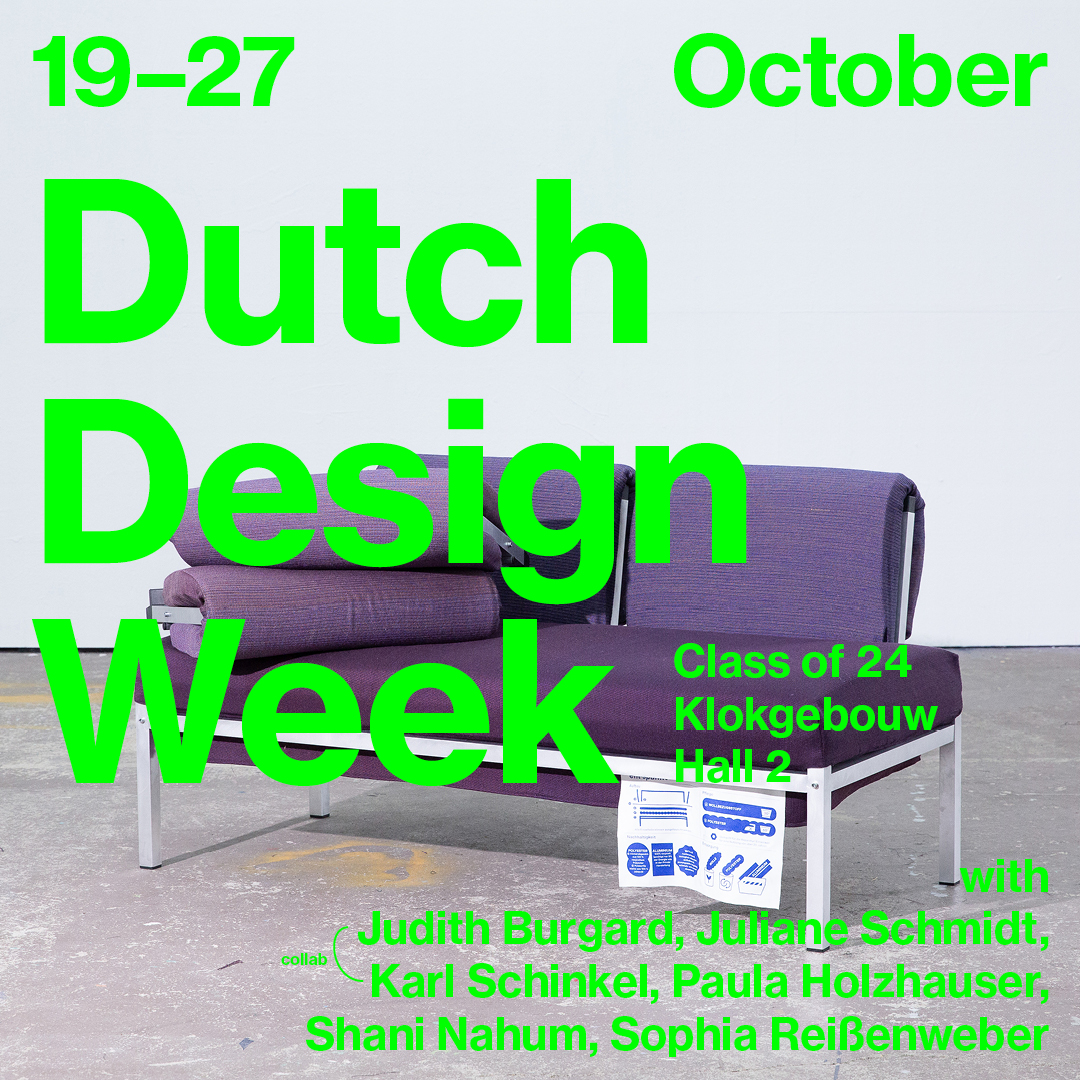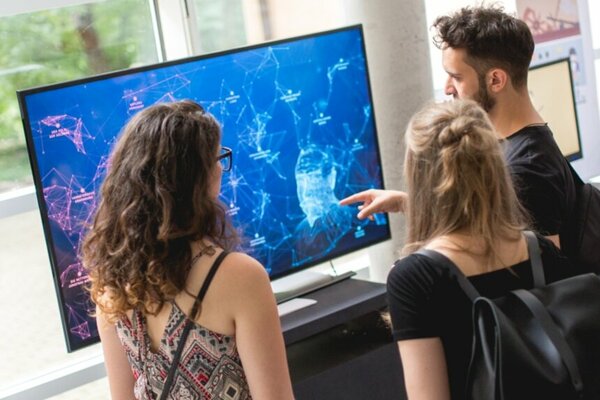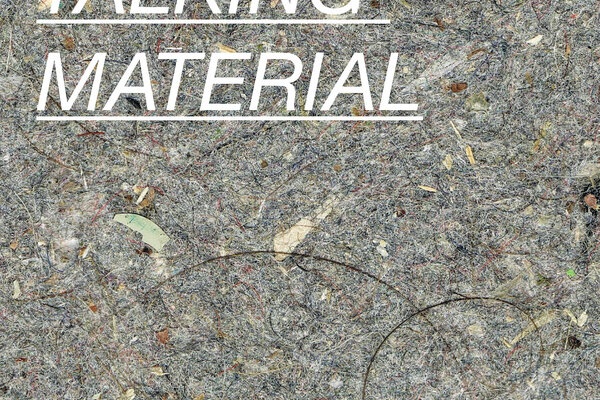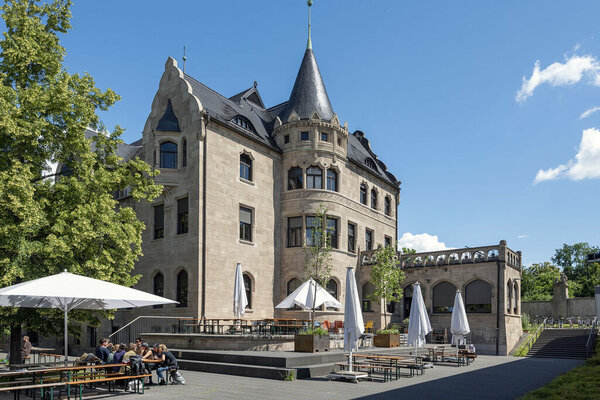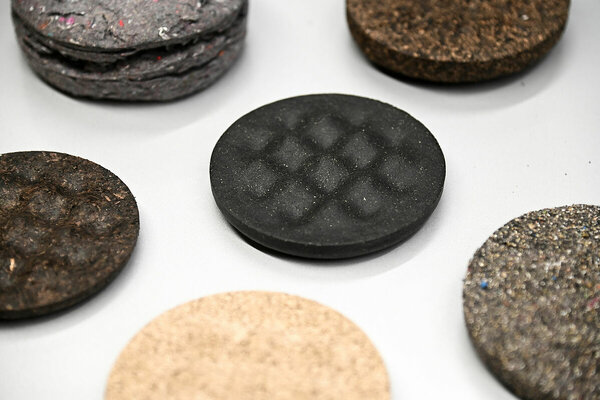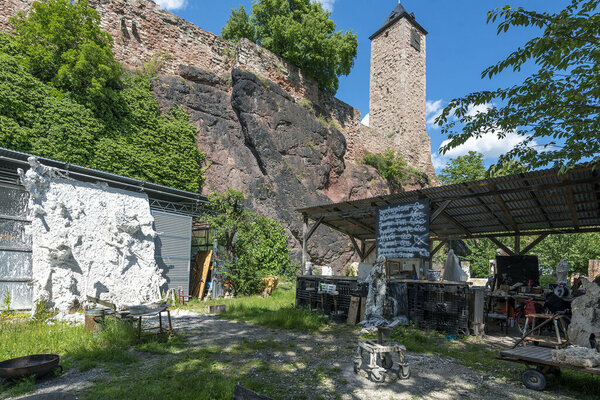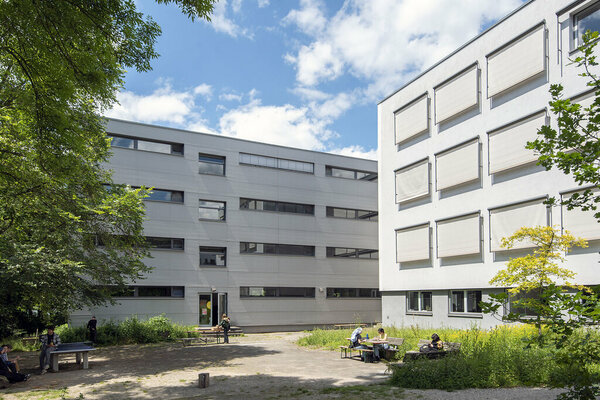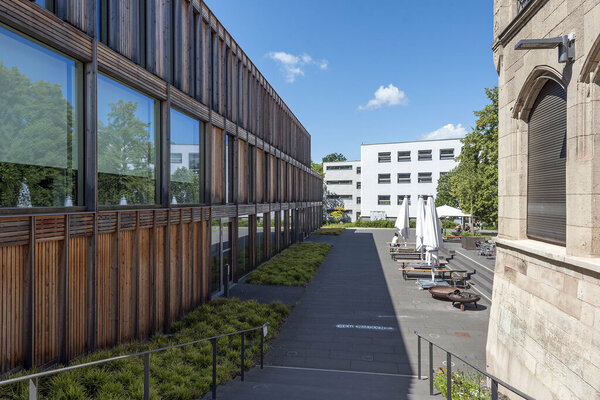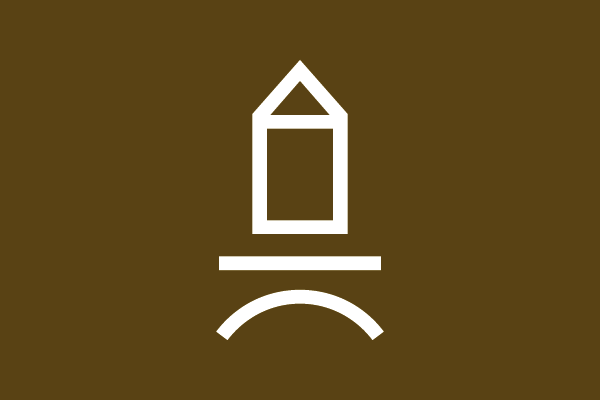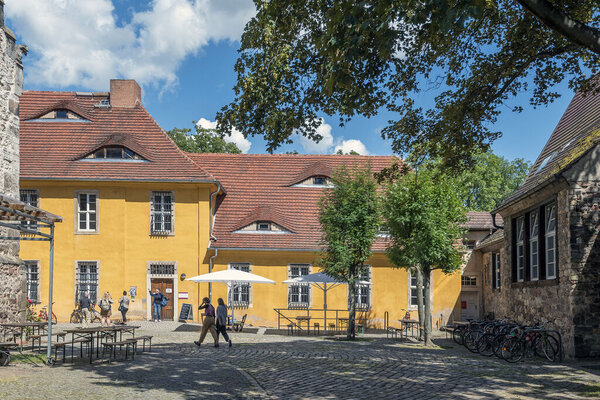Burg Giebichenstein University of Art and Design Halle will be represented at the Dutch Design Week in Eindhoven, Netherlands, from 19 to 27 October 2024. Five works by students and graduates of BURG are participating the group exhibition ‘Class of 24’, which presents graduation projects from various Dutch and international acadmies as part of design study programmes at the international trade fair. The exhibition’s goal is to emphasise the importance of design education and to give the next generation of designers centre stage to a bigger audience during Dutch Design Week.
With FABRICATIONS, BURG is showcasing Bachelor's and Master's theses from textile and industrial design study programmes and offering insights into innovative approaches to material cycles, recycling strategies and the technical and aesthetic properties of textiles.
At the Durch Design Week, works by Sophia Reißenweber, Master graduate in Industrial Design, Paula Holzhauser, Bachelor graduate in Textile Design, Shani Nahum, Master graduate in Conceptual Fashion Design, Juliane Schmidt, Master graduate in Conceptual Fashion Design, Judith Burgard, Bachelor graduate in Industrial Design and Karl Schinkel, Bachelor graduate in Industrial Design, will be shown, illustrating the broad spectrum of design training at BURG.
The exhibitors
Break-Up-Lab
Designer: Sophia Reißenweber
Study Programme: Industrial Design
Project: Master thesis, 2024
The Break-Up Lab is dedicated to the end of an emotional relationship: that between the textile and its previous owners. Through biotechnological processes, the polyester content in used textiles can be broken down, and the recovered building blocks can then be metabolized into a biodegradable plastic (PHA). Yarns and add-ons made from PHA facilitate the easier separation of impurities and enable fiber-to-fiber recycling. Two circular clothing items showcase the aesthetic and functional potentials. Additionally, the Break-up Lab establishes a transparent infrastructure for the collection of used textiles: the MEC Collection System.
You may also like
Designer: Paula Holzhauser
Study Programme: Textile Design
Project: Bachelor thesis, 2024
Textile overproduction and the resulting environmental damage are becoming an increasing issue. Running lengths that are too short or colour deviations lead to residual yarns that are thrown away. Even in smaller companies, up to 400 kg of material is disposed of every month. Design can create incentives to improve the situation. The You may also like project places leftover yarn at the centre of the design and enables it to be recycled. By knotting and twisting the leftovers, running lengths can be extended as required to make them industrially relevant again. The result is a functional yarn that shows the potential of the limited leftovers: The length of the colour remnants influences the fabric pattern, the yarn becomes the actual designer. Colour gradients give the fabric its own aesthetic. The method developed not only enables recycling, but also gives the waste a unique selling point.
The Boiling Purple
Designer: Shani Nahum
Study Programme: Conceptual Textile Design
Project: Master thesis, 2024
The Boiling Purple is a beach towel collection designed to raise awareness of the health risks posed by ultraviolet radiation. The designs show the effects of UV radiation on the present, past, and future using scientific data and ‚Sunkolor‘ material, which changes from white to purple under high UV exposure. Integrating scientific data into textiles enhances their sensory value and informational capacity. This work highlights how rapid climate change requires new design solutions that address environmental and human changes.
Fadenscheinig – an aesthetic study on a phenomenon of textile aging
Designer: Juliane Schmidt
Study Programme: Conceptual Textile Design
Project: Master thesis, 2024
Fadenscheinig (Flimsy) examines the paradoxical relationships between the traces of use in our clothing and their socially ascribed value. In the context of environmental and climate impact, Juliane Schmidt wonders why these traces are often devalued when appreciation is so relevant to the preservation of clothing. Can a universal aesthetic of aging be established beyond conventional consumption patterns and social judgements? A phenomenon of textile aging is studied in exemplary fashion through a collection of fabric samples, the „Archiv der Fadenscheinigkeit“, its units isolated and staged in large jacquard fabrics.
ent-spannt
Designer: Judith Burgard, Karl Schinkel
Study Programme: Industrial Design
Project: Bachelor thesis, 2024
ent-spannt is a newly designed piece of upholstered furniture that responds in its materiality and construction to the short lifespan and poor recyclability of conventional upholstered furniture. By skillfully covering the upholstery with a cover fabric, the frame, upholstery and textile cover are reversibly joined together. This makes it easier to maintain, repair or replace worn materials and should extend the average service life of 8 years by many years. Another important point is that these materials can be separated by type and fed into the recycling cycle in just a few simple steps. Pulling out the piping ‘releases' the upholstery fabric and all materials can be removed individually. The sofa can be configured according to individual requirements thanks to a systematic structure.
Burg Giebichenstein University of Art and Design Halle
Burg Giebichenstein University of Art and Design Halle has a distinctive profile in the German university landscape. Featuring two departments, Art and Design, BURG has offered excellent conditions for education and study since 1915. With over 1,000 students, it is one of the largest universities of art and design in Germany. Visionary ideas and design are the focus of its 20-plus disciplines of study, alongside the development of practical professional skills. The university’s studio and workshop facilities are thoroughly equipped for learning and BURG is part of an active network of research institutes, institutions, and companies. Burg Giebichenstein University of Art and Design Halle confers bachelor’s, master’s, and teaching degrees, as well as the traditional Diplom. Students can also complete a “Meisterschüler” (Master Class) course at BURG. BURG also has the right to award doctorates in both faculties.
The Dutch Design Week
Founded in 1998, Dutch Design Week (DDW) takes place annually in Eindhoven, the Netherlands, and is now one of the largest design events in Europe. More than 2,600 designers present their work at over 110 locations in the city, attracting around 300,000 visitors. The fair focuses on future-oriented, social and technological innovations and offers a platform for creative solutions with lectures, exhibitions and discussions.
BURG at Dutch Design Week in Eindhoven
Period: 19 to 27 October 2024, every day from 11 am to 6 pm
Place: Strijp-S, Klokgebouw Hall 2, Klokgebouw 50, 5617 AB Eindhoven, Netherlands
Exhibition Support: Philipp Witte
Social Media: BURG communicates the trade fair appearance on social media with the hashtags #BurgHalle, #BurgShows und #Fabrications
Further Information: https://ddw.nl/

